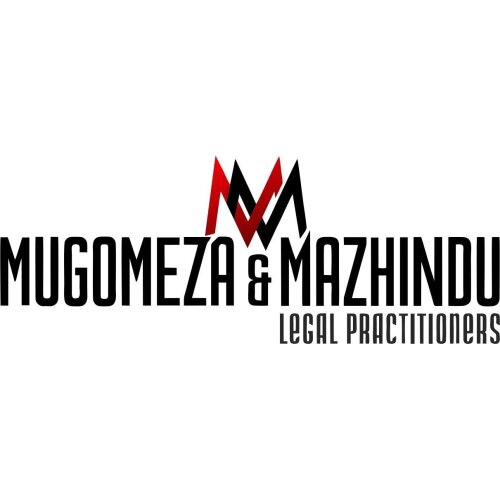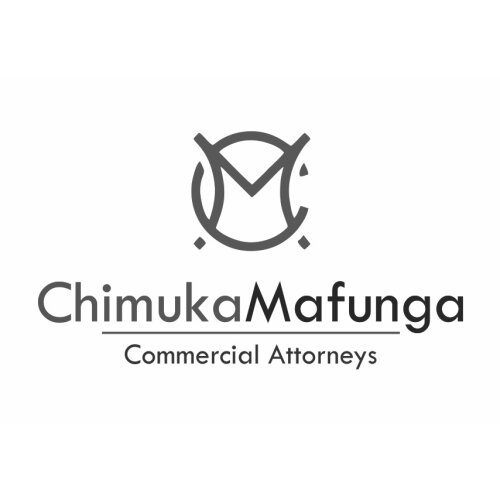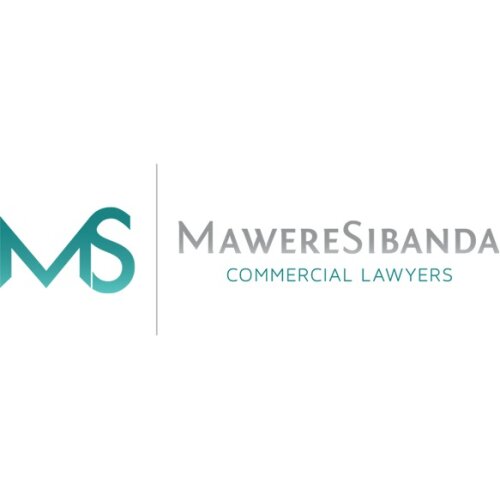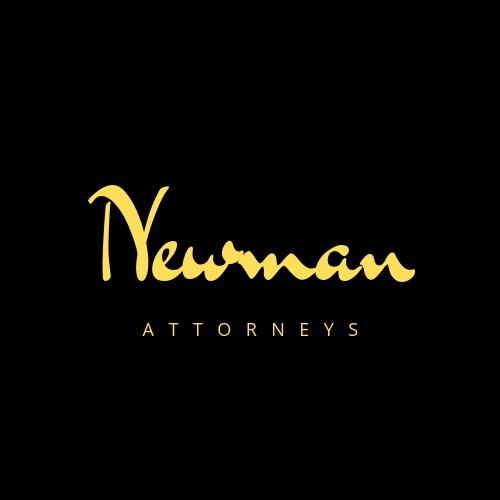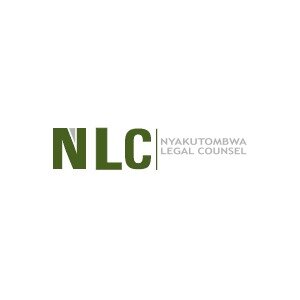Best Renewable & Alternative Energy Lawyers in Harare
Share your needs with us, get contacted by law firms.
Free. Takes 2 min.
List of the best lawyers in Harare, Zimbabwe
About Renewable & Alternative Energy Law in Harare, Zimbabwe
Renewable and alternative energy refers to the generation of electricity and energy using sources that are naturally replenished, such as solar, wind, hydro, and biomass, rather than traditional fossil fuels. In Harare, Zimbabwe, the demand for renewable and alternative energy solutions has grown rapidly due to frequent power shortages and a growing global focus on sustainable development. As a result, there is an increasing need for legal guidance related to renewable energy projects, investment, compliance, and regulation. The legal environment covers issues such as licensing, environmental protection, tariffs, land use, and government incentives that facilitate or impact the development and operation of renewable energy systems in Harare.
Why You May Need a Lawyer
Legal matters in the renewable and alternative energy sector can be complex, particularly as the industry is still evolving in Zimbabwe. You may need to consult a lawyer in the following situations:
- Seeking licenses and permits for constructing or operating renewable energy facilities
- Negotiating power purchase agreements or contracts with the Zimbabwe Electricity Transmission and Distribution Company (ZETDC)
- Understanding and applying for government incentives, subsidies, or tax breaks for renewable energy projects
- Resolving disputes involving land acquisition, property rights, or environmental regulations
- Navigating compliance with local zoning, building, and environmental laws
- Protecting intellectual property related to new renewable energy technologies
- Structuring investment deals or securing financing for renewable energy ventures
- Representing your interests during regulatory investigations or audits
Legal expertise can help you avoid costly mistakes, ensure your project is compliant, and protect your interests in negotiations and disputes.
Local Laws Overview
Zimbabwe has developed a legal and policy framework to support renewable and alternative energy development, particularly in light of energy shortages and environmental concerns. The key laws, regulations, and government initiatives relevant to Harare include:
- Energy Regulatory Authority Act: Establishes the Zimbabwe Energy Regulatory Authority (ZERA), which oversees electricity generation, distribution, and licensing of renewable energy providers.
- Electricity Act: Governs the management and operation of electricity generation, including provisions specific to independent power producers and renewable energy projects.
- National Renewable Energy Policy: Provides guidelines, targets, and incentives for promoting renewable energy sources such as solar, wind, and small hydro projects.
- Environmental Management Act: Sets strict requirements for environmental impact assessments (EIAs) for any energy project, ensuring that projects minimize negative impacts on the environment.
- Investment Incentives: The Zimbabwe Investment and Development Agency (ZIDA) offers incentives like tax holidays and import duty exemptions for qualifying renewable energy projects.
- Land Acquisition and Use: Local bylaws and land acts regulate how land can be acquired, leased, or used for renewable energy installations, especially for solar farms or wind turbines.
It is essential to understand these legal requirements before starting or investing in any renewable energy project in Harare.
Frequently Asked Questions
What permits are required to set up a solar power installation in Harare?
You need approval from the local municipal authority, an environmental impact assessment if the project is large enough, and a license from the Zimbabwe Energy Regulatory Authority.
Can individuals sell excess electricity generated from renewable sources back to the grid?
Yes, through net metering arrangements, but you must follow ZERA’s guidelines and have the appropriate approvals and infrastructure in place.
Are there tax incentives for investing in renewable energy projects?
Yes, certain renewable energy investments may qualify for tax holidays and import duty exemptions, primarily through ZIDA and under specific government policies.
How does the government support renewable energy development?
Support comes in the form of policies targeting renewable energy targets, investment incentives, simplified licensing for independent power producers, and enabling regulations.
Is environmental assessment mandatory for all renewable energy projects?
Environmental assessment is required for most medium to large-scale projects, particularly those expected to have a significant impact. Smaller home installations may not require an EIA.
How do I legally protect my technology or idea in the renewable energy sector?
You can seek patent protection or other intellectual property rights through the African Regional Intellectual Property Organization (ARIPO) or the Zimbabwe Intellectual Property Office.
What are the main risks involved in renewable energy investments?
Risks include regulatory changes, grid connectivity challenges, land disputes, currency volatility, and lengthy approval processes. Legal advice helps mitigate these risks.
Can foreign investors participate in renewable energy projects in Harare?
Yes, foreign investment is encouraged, with specific regulations overseen by ZIDA, but there may be restrictions or additional requirements depending on the size and nature of the investment.
Do I need community approval for a renewable energy project?
Community engagement is highly recommended and sometimes required, especially if the project affects local resources or land use. Formal consultation can be part of the EIA process.
What happens if I do not comply with the relevant energy laws and regulations?
Failure to comply can lead to penalties, shutdowns, license revocation, enforcement actions, or legal disputes. Compliance is essential for a successful project.
Additional Resources
If you need further information or assistance, the following organizations and resources may be helpful:
- Zimbabwe Energy Regulatory Authority (ZERA): Responsible for licensing and regulating the energy sector in Zimbabwe.
- Zimbabwe Investment and Development Agency (ZIDA): Provides information on investment incentives and approval processes.
- Zimbabwe Electricity Transmission and Distribution Company (ZETDC): Manages grid access, power purchase agreements, and related technical requirements.
- Ministry of Energy and Power Development: Sets national energy policy and oversees renewable energy initiatives.
- Environmental Management Agency (EMA): Regulates environmental compliance and assessments for projects with a significant impact.
- Local municipal authorities: Control planning permissions, building permits, and other local approvals.
Next Steps
If you are considering a renewable or alternative energy project in Harare, or need legal advice, take the following steps:
- Consult with a qualified lawyer specializing in energy or environmental law to review your project or investment plan.
- Research applicable local and national laws that may impact your project’s design or implementation.
- Engage with relevant authorities, such as ZERA or EMA, early in your planning process to understand requirements and fast track approvals.
- Prepare all necessary documents before applying for permits or licenses to streamline the approval process.
- If you encounter disputes or regulatory challenges, seek professional legal representation promptly to resolve issues efficiently.
Due diligence and legal guidance are essential for success in Zimbabwe’s growing renewable and alternative energy sector. Taking these steps can help ensure your project is lawful, efficient, and sustainable in the long term.
Lawzana helps you find the best lawyers and law firms in Harare through a curated and pre-screened list of qualified legal professionals. Our platform offers rankings and detailed profiles of attorneys and law firms, allowing you to compare based on practice areas, including Renewable & Alternative Energy, experience, and client feedback.
Each profile includes a description of the firm's areas of practice, client reviews, team members and partners, year of establishment, spoken languages, office locations, contact information, social media presence, and any published articles or resources. Most firms on our platform speak English and are experienced in both local and international legal matters.
Get a quote from top-rated law firms in Harare, Zimbabwe — quickly, securely, and without unnecessary hassle.
Disclaimer:
The information provided on this page is for general informational purposes only and does not constitute legal advice. While we strive to ensure the accuracy and relevance of the content, legal information may change over time, and interpretations of the law can vary. You should always consult with a qualified legal professional for advice specific to your situation.
We disclaim all liability for actions taken or not taken based on the content of this page. If you believe any information is incorrect or outdated, please contact us, and we will review and update it where appropriate.






